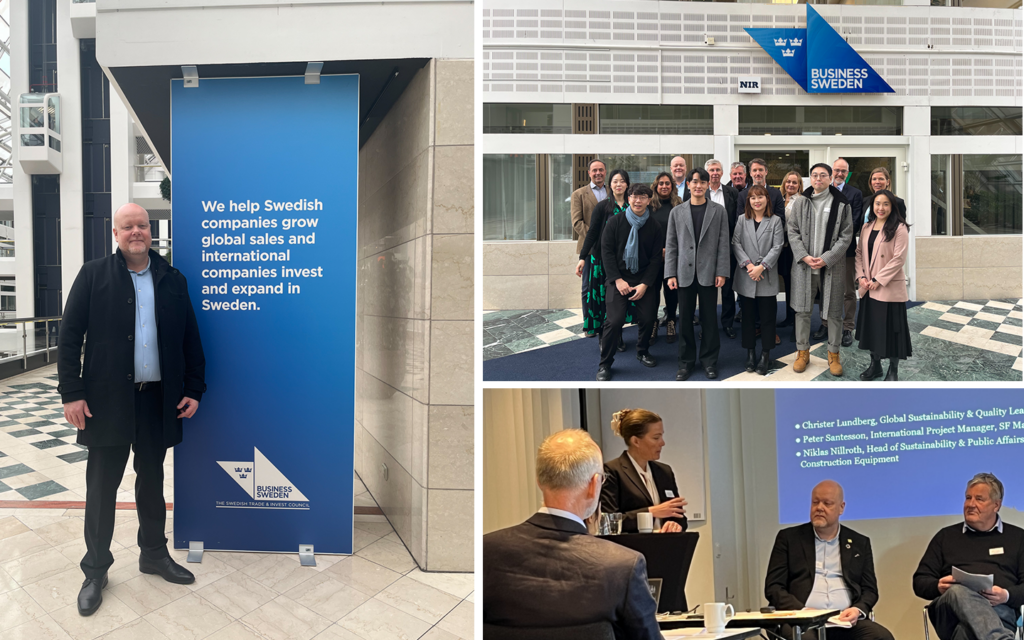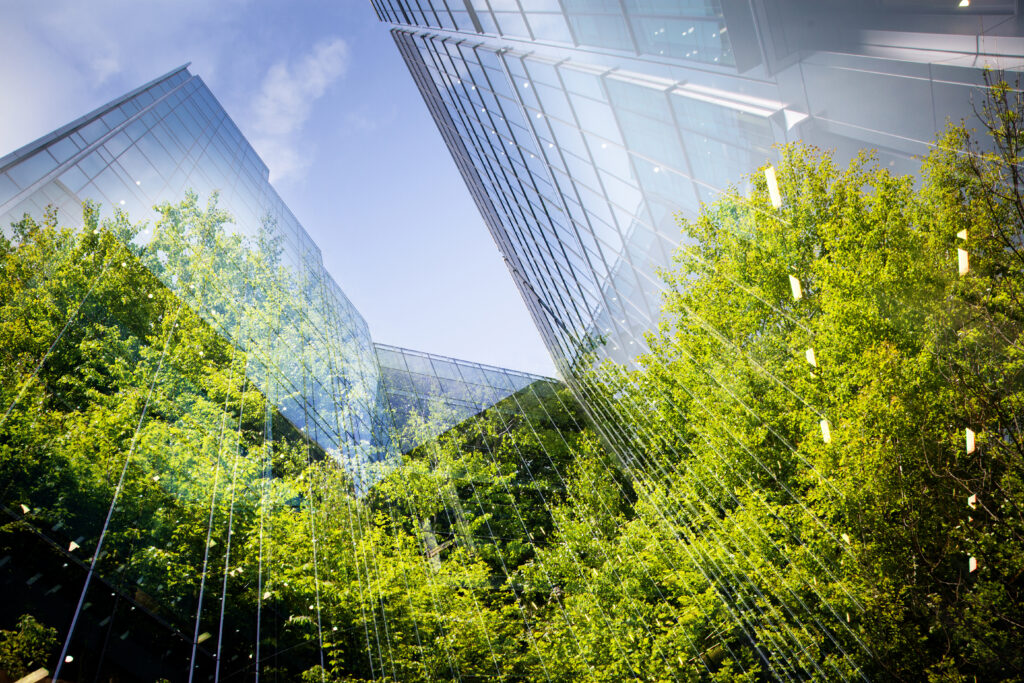Q&A between journalists from South Korea and Christer Lundberg, Global Sustainability & Quality Lead at Envac

The Sweden+Korea Green Transition Alliance and its member companies invited a delegation of South Korean journalists to Sweden to learn more about Swedish sustainability solutions that can support South Korea to become a carbon-neutral society by 2050.
With the latest UN climate report in March 2023 alarming the world to the closing window of opportunity to secure a liveable and sustainable future for all, we quickly need to scale up more sustainable solutions in the world’s cities.
The aim of the Sweden+Korea Green Transition Alliance event was to demonstrate and exchange proven solutions that can promote circularity, renewable energy and smart mobility. This Q&A between journalists from South Korea and Christer Lundberg, Global Sustainability & Quality Lead at Envac, is from the session on more sustainable waste management solutions.
Read more about South Korea's move towards the goal of carbon neutrality by 2050.Q. Can you tell us about how Envac can help society meet its sustainability goals?
A. Envac has been delivering more sustainable waste collection systems to customers around the world since the 1960s. Our solutions help to minimise emissions, promote energy efficiency, and help create smart cities that improve quality of life and secure a greener planet for future generations. We’ve actually been delivering waste collection systems in South Korea since 1995.
Q. Is the Envac solution adapted to meet local needs?
A. Our advanced solution has been developed for the entire global market and the technology is adapted to meet local needs. We call this ‘local leadership’, and it involves working with local regulations and the authorities – to optimise the local sustainability benefits of our solution.
Q. How does Envac know that its solution contributes to sustainability?
A. With 2.5 billion more people living in urban areas by 2050 and a doubling of the amount of waste generated, cities face challenges with increased urbanisation and pressure on urban infrastructure. Envac is part of a broader solution by helping cities to overcome these challenges with a waste collection solution that helps to reduce traffic emissions, space limitations, road safety and cleanliness.
Q. What role do policy makers play in implementing more sustainable solutions?
A. Policy makers are an essential stakeholder to make more sustainable solutions a reality as they can build local leadership and the conditions to enable positive change. At Envac, we focus on creating holistic multi-stakeholder partnerships where we work closely with policy makers and local partners to ensure national and local objectives are met.
Q. How many jobs have been created over the past decade because of the ‘green transition’ and how do you see future job creation in the waste management sector?
A. The waste management sector is already a major global employer. According to the UN environment programme, there are 12 million people employed in the recycling industry in Brazil, the US and China alone[1]. The International Labour Organisation predicts that investments in solutions to achieve the 2°C climate target can lead to the creation of around 24 million new jobs in the global economy[2]. The Organisation for Economic Co-operation and Development (OECD) has highlighted ‘Recycling and waste management’ as one of the future growth sectors that will benefit from green policies[3].
Q. How important are the ‘Green Taxonomy’ and ‘Green bonds’ to Envac?
A. We take a data-based approach to prove that our products are ‘green’ – through tangible sustainability benefits for society. We see the Green Taxonomy and green bond requirements as positive as they can clearly make the case for solutions such as ours. In addition, we are continuously developing our customer offering to further enhance the sustainability benefits of our solutions to society.
Q. Can Envac’s system be installed in existing cities or is the cost too great?
A. We have several good examples globally where we have successfully installed our system in a way that is not only cost effective, but that also preserves the historical heritage of cities by significantly reducing heavy traffic for example. Notable examples are Bergen in Norway and León in Spain.
Q. What if the city is already saturated with underground infrastructure, such as in parts of Seoul for example?
A. Envac has the competence and expertise to install our solutions in saturated areas and our systems are installed in dense areas of Paris, London, New York, and Seoul. These success stories illustrate that even in dense urban areas, there may be opportunities to install waste collection pipes under streets, buildings, or parking areas. In Seoul, we focus on both redevelopment and new development projects as we have the potential to make provisions as per the scalability of the area.
Q. As Envac’s system requires electricity, how do you justify it as being more sustainable?
A. Yes, our solution uses electricity, but it is much more efficient and more sustainable compared with conventional waste truck collection solutions. Data from existing Envac systems shows that our systems reduce carbon emissions by 90 percent – as well as improving traffic safety and cleanliness by removing heavy vehicles and bins from the city streets.
We are also constantly improving the energy efficiency of our solutions. For example, frequency converters, Artificial Intelligence and sensors have halved the energy consumption of our systems over the last 10 years. Our vision is to offer carbon neutral processes by 2030 through the use of intelligent systems. In addition, some of our recent systems are powered by solar energy and use batteries to avoid using peak power consumption[4].

Envac’s annual sustainbility report
Everyone need to act on this. We are ready to do our part.
Read moreSources & references:
[1] UN Environmental Programme – https://www.unep.org/explore-topics/resource-efficiency/what-we-do/cities/solid-waste-management
[2] ILO – https://www.ilo.org/global/about-the-ilo/newsroom/news/WCMS_628644/lang–en/index.htm
[3] OECD – https://www.oecd.org/environment/Employment-Implications-of-Green-Growth-OECD-Report-G7-Environment-Ministers.pdf
[4] Envac – https://www.envacgroup.com/envac-partners-with-stella-futura-to-accelerate-the-impact-of-automated-waste-collection-with-sustainable-energy-solutions/



